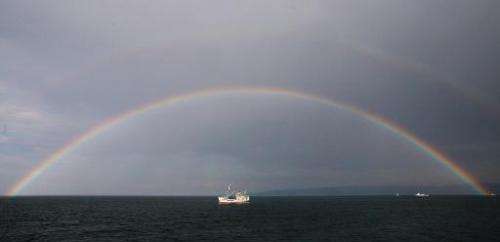Russia sounds alarm as Lake Baikal's water levels drop

Russia sounded the alarm Tuesday as water levels in Lake Baikal, the world's largest freshwater lake, dropped to record lows, with environmentalists blaming dry weather and overuse by local industry.
The regional emergency ministry in Buryatia region on the lake's shores announced a state of high alert as villages surrounding the lake were reportedly hit by water shortages.
The water level in the lake is just eight centimetres (3 inches) above the minimum 456 metres (1496 feet) above sea level allowed by the Russian government. The lake has been at its lowest levels in 60 years, according to Buryatia natural resources minister Yury Safyanov.
Environmentalists, fishermen and industry that relies on hydroelectric power stations fed by Baikal haggle over the lake year after year.
The Irkutsk hydroelectric power station on the Angara River flowing from Lake Baikal serves the large city of Irkutsk with electricity and water. It also feeds an enormous aluminium plant in the region with electricity. There are several other hydroelectric power plants on the Angara.
Lake Baikal—one of Russia's most striking landmarks which contains around one-fifth of the Earth's fresh water—is also a bone of contention between big industry and local populations thirsty for its water.
In Buryatia, a region that borders Lake Baikal and Mongolia, the governor Vyacheslav Nagovitsyn said there were already reports of underground springs drying up, fish disappearing and wild fires increasing.
"Every year, energy workers want to lower the level of Baikal to produce more power," said Alexander Kolotov, a coordinator for Rivers Without Boundaries, a coalition of environmentalists in Russia, China, Mongolia and the United States.
"But that is detrimental to the ecosystem," he told AFP.
A special meeting of the Russian government will decide next week whether to allow Baikal to drop below the current legal minimum level to feed the hydroelectric power plants, he said.
Last spring Baikal's levels were lowered as everyone expected a rainy year, but the year turned out to be dry and the lake's level stayed low, said Arkady Ivanov of Greenpeace's Baikal programme.
"Now the energy industry wants to drop it even further—the more the level drops the more money is made," Ivanov said, cautioning that lower levels disrupt fish spawning and increase algae growth.
© 2015 AFP




















